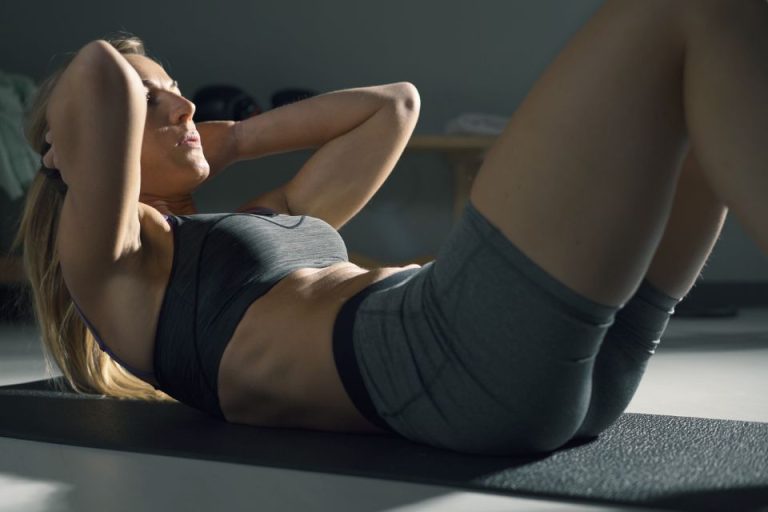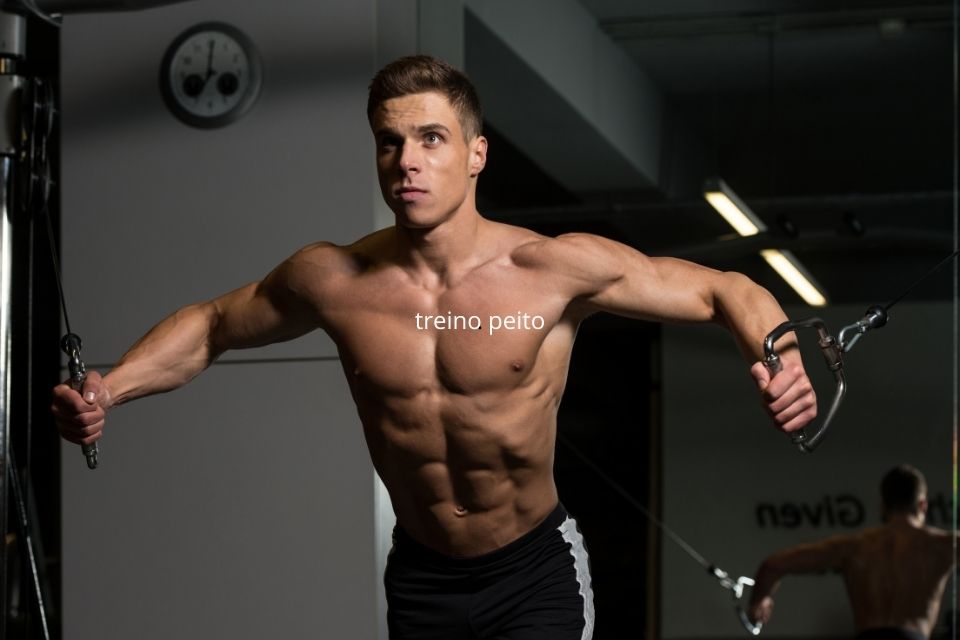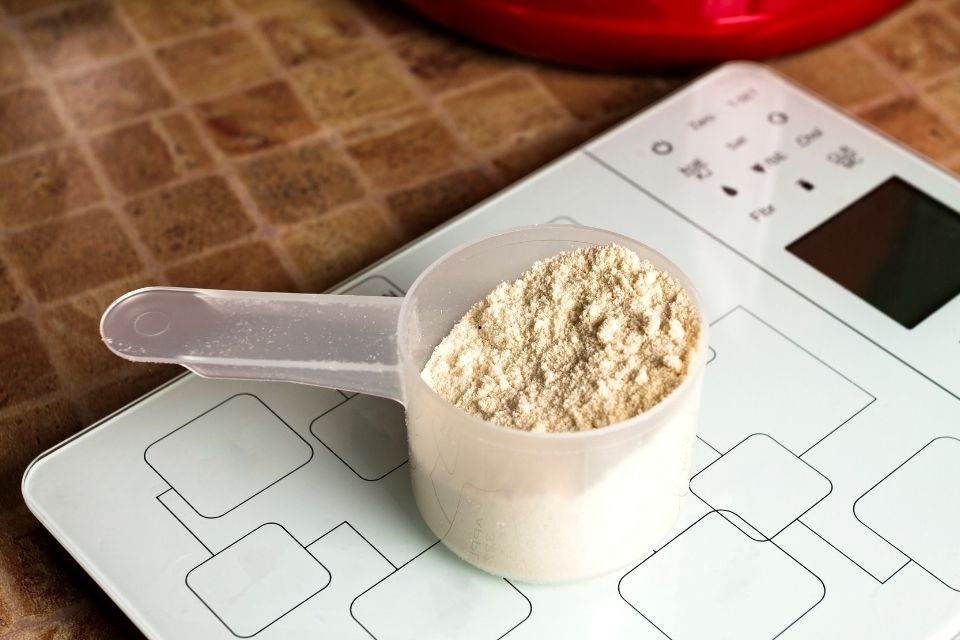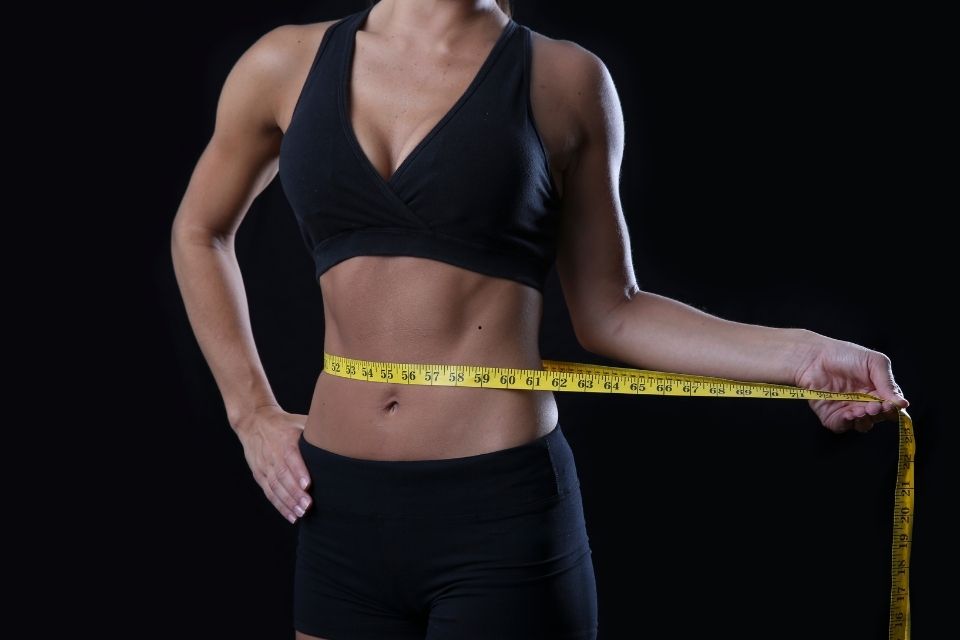Ab exercises are among the most popular workouts for those looking to define their abs, strengthen their core, and improve posture.
But not all ab exercises are the same, there are different variations that activate specific areas of the abdominal muscles and suit different fitness goals.
In this article, you’ll discover the main types of ab exercises, how to perform them correctly, and how to structure an effective routine focused on real and lasting results.
What are ab exercises and why do they matter?
Ab exercises are movements that engage the muscles in your abdominal region. These muscles go far beyond aesthetics, they play a key role in stabilizing your spine, protecting internal organs, and enhancing performance in other physical activities.
A well-designed ab workout can help:
- Reduce lower back pain
- Improve balance and posture
- Boost functional strength
- Support fat loss and muscle definition
And here’s the truth: abs aren’t just built with sit-ups. There are many types of exercises, each serving a strategic role in core development.
Main types of ab exercises
Below are the most effective types of ab exercises, what they target, and how to perform them properly:
Traditional crunch (upper abs)
The most well-known movement: lying on your back with knees bent, lifting the torso toward the knees. It mainly targets the upper abs.
It’s great for beginners, but it’s essential to watch your form to avoid neck or lower back strain.

-
Muscles
- Primary
-
 Abdominals
Abdominals
-
Instructions
- Lie on the floor with your knees bent and your feet slightly in front of your glutes
- Place your hands behind your head
- Flex your torso by contracting your abdomen and return in a controlled manner
-
Important Tips
- Avoid performing the movement only with your neck; use your torso flexion
- Keep your feet fixed on the ground
- Avoid jerks and sudden movements
Crunch Floor
Lower ab exercises
These focus on the lower abdominal region, which is harder to isolate. Movements like leg raises, reverse crunches, and hanging knee raises fall into this category.
They’re ideal for improving the bottom portion of your abs and building a balanced core.

-
Muscles
- Primary
-
 Abdominals
Abdominals
-
Instructions
- Position your forearms and elbows correctly on the support
- Place your torso and hips against the backrest of the equipment
- Lift your feet off the support and raise your legs with knees bent until your knees slightly surpass the hip line
- Perform the return movement in a controlled manner
-
Important Tips
- Keep your torso and hips fixed to the backrest of the equipment
- Avoid excessive movements with your lower back
- Avoid jerking and abrupt movements
Captains chair leg raise
Oblique exercises
Obliques are the muscles on the sides of your abs, responsible for rotation and lateral movements. Side crunches, Russian twists, and bicycle crunches are effective ways to target them.
They’re perfect for those aiming to shape the waist and improve stability in twisting movements.

-
Muscles
- Primary
-
 Abdominals
Abdominals
- Secondary
-
 Abdominals
Abdominals
-
Instructions
- Lie on the floor with your knees bent and your feet slightly in front of your glutes
- Position one arm stretched out beside your body and place the other hand behind your head
- Perform the flexion and rotation movement of your torso in a crosswise manner
-
Important Tips
- Avoid lowering your torso incompletely
- Keep your feet fixed on the ground
- Avoid jerks and sudden movements
Alternate oblique crunch
V-ups or jackknife crunch
This advanced movement combines upper and lower ab activation. You lie down with arms and legs extended and bring both up to meet in the middle.
It’s a powerful exercise for full core engagement, improving strength and coordination.

-
Muscles
- Primary
-
 Abdominals
Abdominals
-
Instructions
- Lie on the ground with your knees extended and arms above your head with elbows straight
- Lift your feet and legs off the ground while keeping your knees extended
- Flex your torso and raise your legs until your hands come close to your knees
- Perform the return movement in a controlled manner
-
Important Tips
- Perform the return movement completely, touching your torso to the floor
- Keep your glutes glued to the ground throughout the exercise
- Avoid jerking and abrupt movements
V Ups
Plank
A static yet highly effective movement, the plank targets the entire core while also working the shoulders, glutes, and back.
It’s ideal for improving posture, endurance, and overall core stability.

-
Muscles
- Primary
-
 Abdominals
Abdominals
- Secondary
-
 Shoulders
Shoulders
-
Instructions
- Position yourself on the floor with your knees extended and elbows on the ground aligned with your shoulders
- Place your feet apart and in line with your hips
- Keep your knees, hips, and torso fully aligned
- Engage your abdomen, glutes, and scapular muscles
-
Important Tips
- Avoid raising and lowering your torso
- Prevent your hips from dropping
- Do not place your elbows in front of or behind the shoulder line
High Plank
Ab exercises with equipment
Using a Swiss ball or ab machine can add variety and challenge. The ball increases range of motion, while machines help guide the movement for safety and control.
They’re great for beginners or anyone looking to intensify their core routine.

-
Muscles
- Primary
-
 Abdominals
Abdominals
-
Instructions
- Sit on the bench and position your hips and torso against the support
- Hold the support above your head
- Keep your legs stationary throughout the movement
- Perform the movement by contracting your abdomen and flexing your torso
-
Important Tips
- Avoid lifting your hips and torso off the backrest of the bench
- Avoid moving your knees and legs upward
- Avoid jerking and abrupt movements
Abdominal Crunch Machine
What’s the best ab exercise to lose belly fat?
No ab exercise alone can burn belly fat. To see definition, you need to reduce overall body fat through a combination of core training, cardio, and proper nutrition.
That said, these are some of the most effective ab exercises for core development:
- Planks (and variations)
- Reverse crunches
- Oblique twists
- V-ups
- Hanging leg raises
When done consistently and combined with a solid workout plan, they contribute to fat loss and abdominal definition.
How to build a complete ab workout
A good ab routine doesn’t need to be long, but it must be smart. Here’s a sample ab workout you can do at home or at the gym:
- Forearm plank – 3 sets of 30 seconds
- Reverse crunch – 3 sets of 15 reps
- Oblique crunch – 2 sets of 12 reps per side
- V-ups – 2 sets of 10 reps
- Side plank – 2 sets of 20 seconds per side
Repeat this routine 2 to 3 times per week, allowing recovery between sessions.
Common mistakes to avoid
- Rushing through reps without control
- Holding your breath
- Straining your lower back or neck
- Doing abs expecting to spot-reduce fat
- Skipping variation in your routine
Avoiding these mistakes ensures safer and more effective workouts.
Ab exercises and posture health
A strong core isn’t just about looks, it’s crucial for your health. Strengthening abdominal muscles improves your posture, reduces back pain, and enhances performance in full-body exercises like squats and running.
It also increases stability, which prevents injuries and improves movement quality.
Strengthen your abs the smart way
Now that you understand the different types of ab exercises, it’s time to build a more strategic and effective routine. Don’t settle for just crunches, target all areas of your core and train with purpose.
And if you want expert guidance and ready-to-use workouts, the BeFit app is here for you.
Inside BeFit, you’ll find complete ab-focused routines, video tutorials, professional tips, and progress tracking to help you stay consistent and see results.
Download the BeFit app today and take your fitness journey to the next level—stronger, smarter, and more confident.








